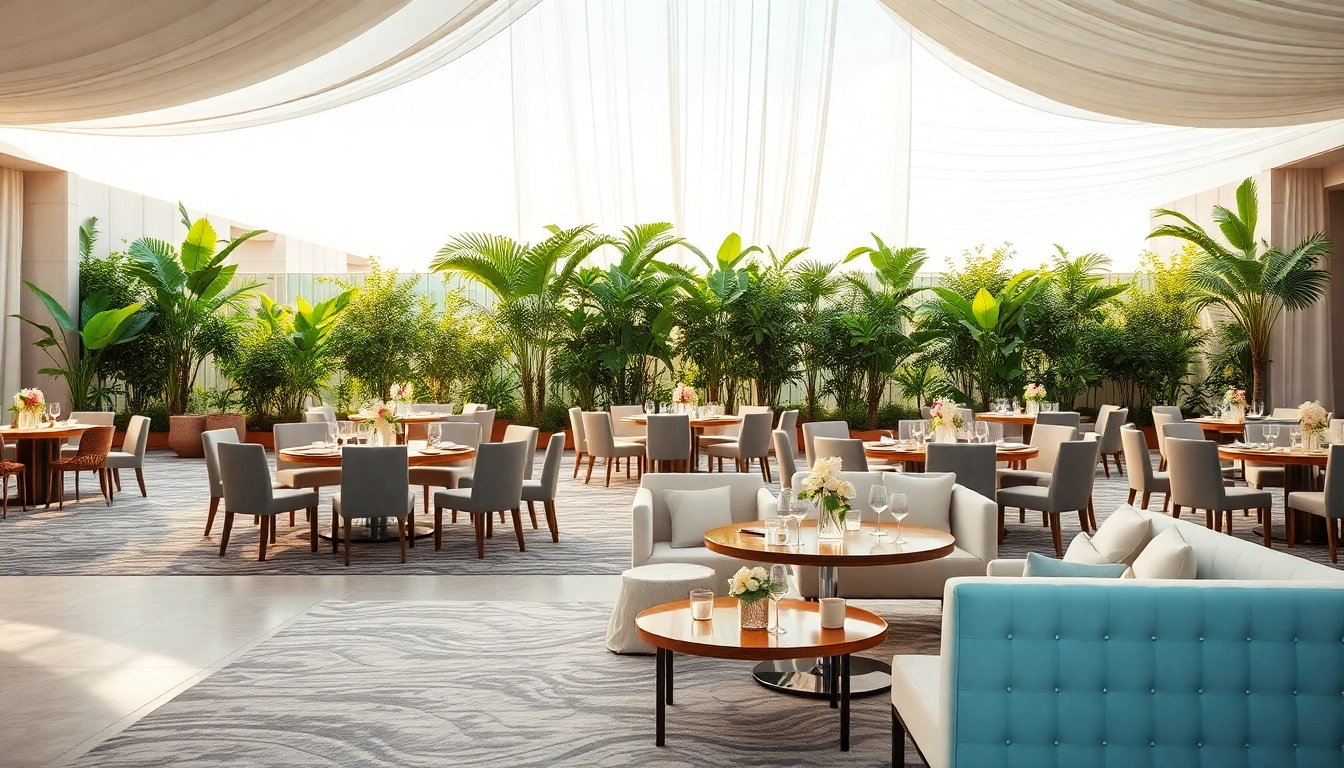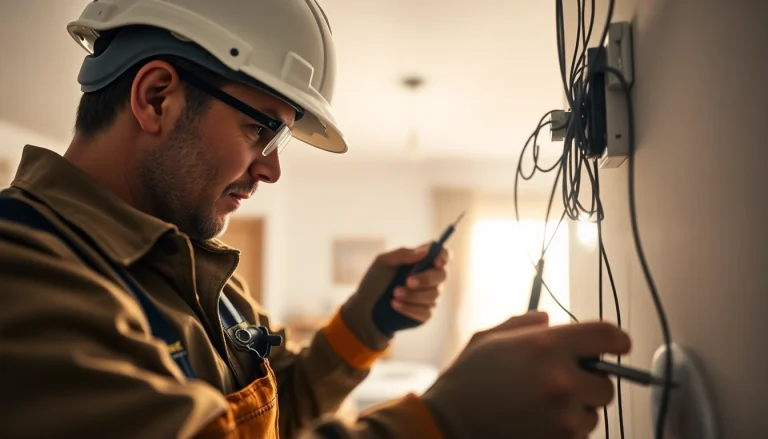Understanding Your Event Space Needs
When planning any gathering—be it a corporate event, wedding, or community meeting—it’s essential to ensure that your venue aligns with the goals of your event. Understanding your event space needs is the cornerstone of hosting a successful occasion. By considering the purpose of the gathering, the intended audience, and your budget, you can lay the groundwork for an impactful experience. To assist you, we will guide you through a meticulous analysis of these factors, ensuring you make informed choices tailored to your requirements. By utilizing the right resources, you can discover the ideal event space that meets your specific needs.
Defining the Purpose of Your Event Space
The first step in selecting an event space is to clearly define the purpose of your gathering. Are you hosting a corporate conference, an intimate wedding, or perhaps a community fundraising event? The purpose will heavily influence the atmosphere, layout, and amenities required. For example, corporate gatherings often necessitate the availability of sophisticated audio-visual equipment and flexible room layouts that can accommodate breakout sessions, whereas a wedding might prioritize aesthetic appeal and romantic ambiance.
Identifying Target Audience Requirements
Another crucial dimension to consider is your target audience. Understanding their needs will enable you to tailor the event experience. Factors to consider include:
- Age demographics: Younger audiences may prefer venues with modern aesthetics, while older groups might appreciate more traditional settings.
- Accessibility: Ensure that the venue is accessible for individuals with mobility challenges.
- Expected Attendance: The size of your audience will dictate the capacity of available venues. A smaller, intimate gathering requires a different layout compared to a large conference.
Engaging your audience by catering to their needs enhances their experience, encouraging interaction and satisfaction.
Determining Budget Constraints for Event Space
Lastly, budgeting plays a pivotal role in selecting your event space. While it’s easy to get carried away with dream venues, it’s vital to remain grounded in financial reality. Consider all potential costs, including:
- Rental fees: Understand the pricing models—some venues charge hourly, while others may offer packaged deals.
- Additional services: Many venues provide catering, decorations, and technology services, which can add costs.
- Travel expenses: Factor in transportation for attendees, especially if your event requires a remote location.
By outlining a budget at the outset, you can avoid overspends and stay on track financially.
Types of Event Space Available
Understanding the various types of available spaces can give you insight into the possibilities for your upcoming event. Each venue type comes with its own unique characteristics that can enhance specific experiences.
Indoor vs. Outdoor Event Space Options
Choosing between indoor and outdoor event spaces is among the earliest decisions you will face. Both options offer distinctive benefits and potential drawbacks:
- Indoor Spaces: These venues often provide climate control and are generally suitable for any season. They are ideal for formal gatherings like corporate events or gala dinners. However, it’s crucial to ensure that the indoor venue meets your aesthetic vision and layout requirements.
- Outdoor Spaces: Outdoor venues offer natural beauty and flexibility in atmosphere and decoration. They are perfect for casual celebrations such as weddings or community festivals. However, they come with challenges, notably unpredictable weather and the need for additional facilities like tents or portable restrooms.
Ultimately, the decision will depend on the theme of your event, the time of year, and the comfort of your attendees.
Common Event Space Configurations
Event space configurations are vital to how your guests will experience the proceedings. Different setups can set diverse tones:
- Theater Style: Ideal for presentations, this configuration allows seating in rows facing the speaker, maximizing audience engagement.
- Banquet Style: Perfect for meals or socializing, round tables can encourage discussion and interaction among guests.
- Classroom Style: Suitable for training sessions, this setup offers tables arranged with chairs, promoting interaction while allowing guests to take notes.
Choosing the rightful configuration will depend on the event’s nature and the activities planned throughout the gathering.
Specialized Event Space for Unique Gatherings
Certain gatherings require specialized settings that are not traditionally classified as conventional venues. Consider these unique options:
- Museums and Art Galleries: These venues provide a stunning backdrop filled with creativity, ideal for art shows or intimate gatherings.
- Industrial Spaces: Warehouses and lofts have become trendy choices for modern events, offering a blank canvas for remarkable setups.
- Outdoor Parks and Gardens: These spaces can create picturesque settings for weddings and outdoor banquets, surrounded by nature.
Exploring alternative venues can often lead to more memorable and unique experiences for your guests.
Essential Features of a Quality Event Space
Beyond the visual appeal of a venue, several essential features contribute to the overall success of your event. A suitable space should not only accommodate your guests physically but also cater to their needs comfortably.
Accessibility and Location Considerations
The venue’s location is a crucial factor that can influence attendance. A centrally located venue or one with prominent transport links increases accessibility for guests. Further considerations include:
- Parking: Ensure enough onsite or nearby parking space to avoid frustrating guests before the event begins.
- Public Transit Access: Promote inclusivity by choosing venues readily accessible by public transport for those who may not drive.
Furthermore, ensure that the venue adheres to disability standards, allowing everyone to enjoy the event freely.
Technological Needs of Your Event Space
Modern events often require significant technological support to create engaging environments. Ensure your chosen venue includes essential technological facilities such as:
- High-Speed Wi-Fi: Essential for connectivity, especially if presentations and streaming options are involved.
- Audio-Visual Equipment: Look for venues that provide projectors, screens, microphones, and sound systems.
- Charging Stations: Providing charging outlets for phones and laptops can significantly enhance attendee satisfaction.
Confirming the availability of these features will help avoid pitfalls on the event day.
Aesthetic Appeal and Ambiance in Event Space
The aesthetic of your venue sets the tone for your event. Atmosphere and ambiance can significantly affect how attendees perceive the occasion. Consider asking yourself:
- What theme do you aim to convey? Ensure that the venue aligns visually with your event branding.
- Are the furnishings and decorations conducive to the activities planned?
Creating a cohesive environment that resonates with your brand will create a more memorable event for guests.
Planning and Booking Your Event Space
Once you’ve determined your needs and narrowed down possible venues, it’s time to plan and book your event space. This process can seem daunting, but with the correct approach and clear organization, you can simplify the logistics.
Checklist for Securing the Right Event Space
Having a thorough checklist during the planning phase can streamline the process of securing your venue. Key items to include are:
- Begin by making a list of potential venues that fit your criteria.
- Visit each venue for firsthand impressions, noting layout, accessibility, and services.
- Request availability for your preferred date, as venues can fill up quickly.
- Obtain quotes and determine the costs involved, factoring in hidden fees for additional services.
- Verify cancellation policies to protect your investment in case plans change.
Using a dedicated checklist can help ensure you cover all bases before making a decision.
Negotiating Costs and Terms for Event Space
After assessing your preferred space, it’s time to negotiate terms. Successful negotiation can lead to significant savings and better terms. Here are some strategies:
- Research standard market rates for similar venues to inform your negotiations.
- Express any specific needs you might have; often venues are willing to accommodate requests to secure a booking.
- Inquire about group discounts or bundled package offers, which can reduce overall costs.
Effective negotiation can create a win-win situation for both parties involved therein.
Understanding Cancellation Policies of Event Space
Understanding a venue’s cancellation policy is vital before signing any contracts. Policies may range considerably among venues, so consider:
- What portion of your deposit is refundable?
- How much notice is required for a cancellation? Understanding these points can help you avoid unexpected losses.
- Are there rescheduling options included in the policy? This may provide flexibility if plans are disrupted.
Taking the time to understand this aspect can save potential headaches in case of unforeseen circumstances.
Maximizing the Impact of Your Event Space
After securing your event space, the focus should shift towards maximizing its potential to enhance your gathering’s impact. The experience extends beyond the initial selection and planning, as the execution can determine the overall success of the event.
Creative Decor Ideas for Event Space
Decor plays a pivotal role in transforming any venue into a memorable space. Here are some unique decor ideas to elevate your event:
- Themed decorations: Aligning decor with your event theme can create a cohesive experience for attendees.
- Lighting: Strategic lighting can alter the ambiance of a space—consider using colored lights to set different moods throughout the event.
- Interactive installations: Engage your guests with installations that allow them to participate, making your event more memorable.
Well-executed decor can help communicate your message and leave a lasting impression on your attendees.
How to Effectively Promote Your Event Space
Promotion is essential to drawing in the desired crowd. Create an effective promotional strategy that includes:
- Utilizing social media platforms to generate buzz around your event and keep an active audience engaged.
- Collaborating with local influencers who can help share your event within their networks, exponentially increasing your reach.
- Providing compelling descriptions and visuals that highlight unique aspects of your event space to entice attendees.
Thoughtful promotion can help fill your event spaces and elevate attendance rates.
Gathering Feedback and Measuring Success of Event Space
Post-event evaluations are crucial to understanding how well your chosen venue served its purpose. Consider gathering feedback through:
- Surveys distributed to attendees to gauge their satisfaction levels regarding location, amenities, and overall experience.
- Post-event meetings with your team to discuss what worked well and what could improve for future events.
- Analyzing attendance rates and social media engagement as metrics of success.
By embracing feedback and measurement as an integral part of the process, you can enhance future events, ensuring they are even more successful.








